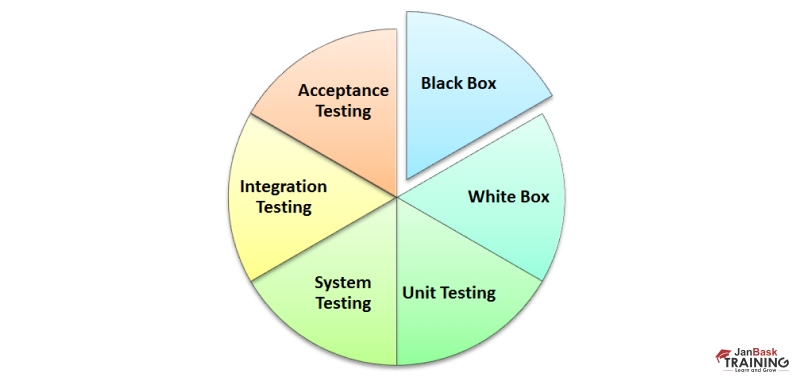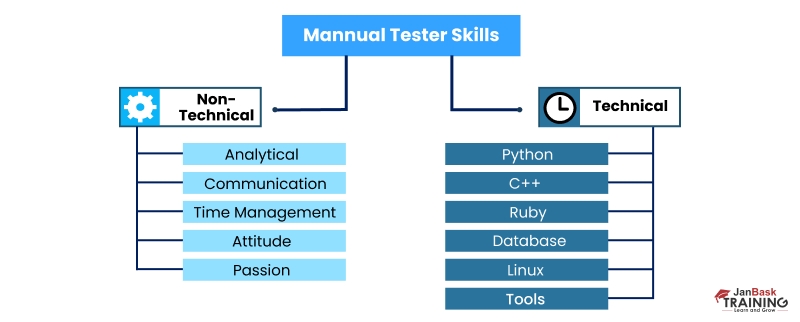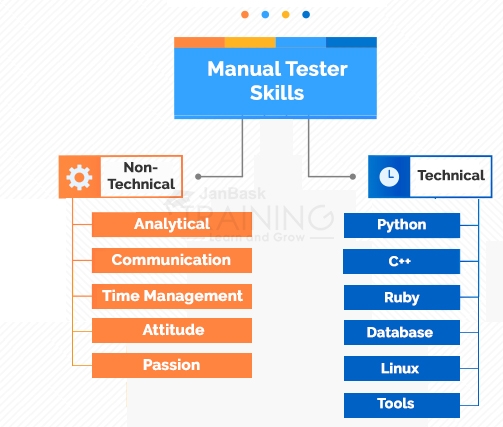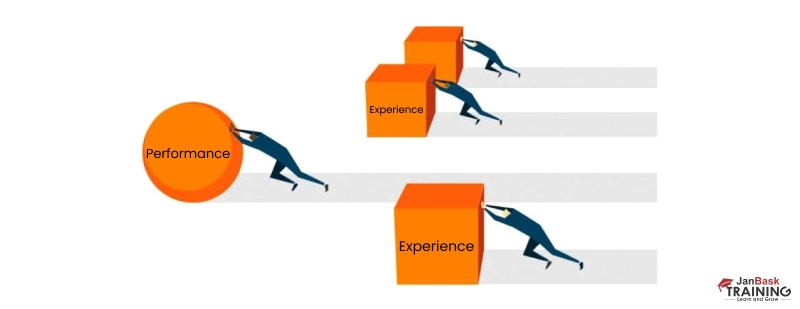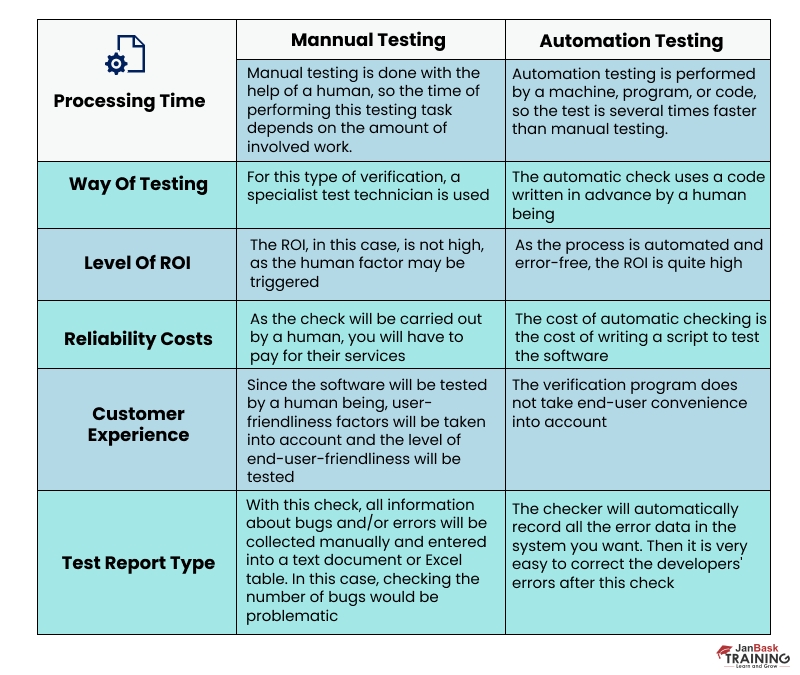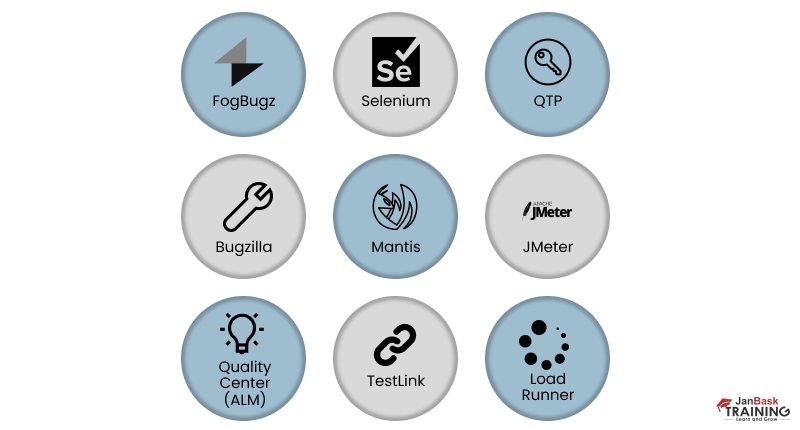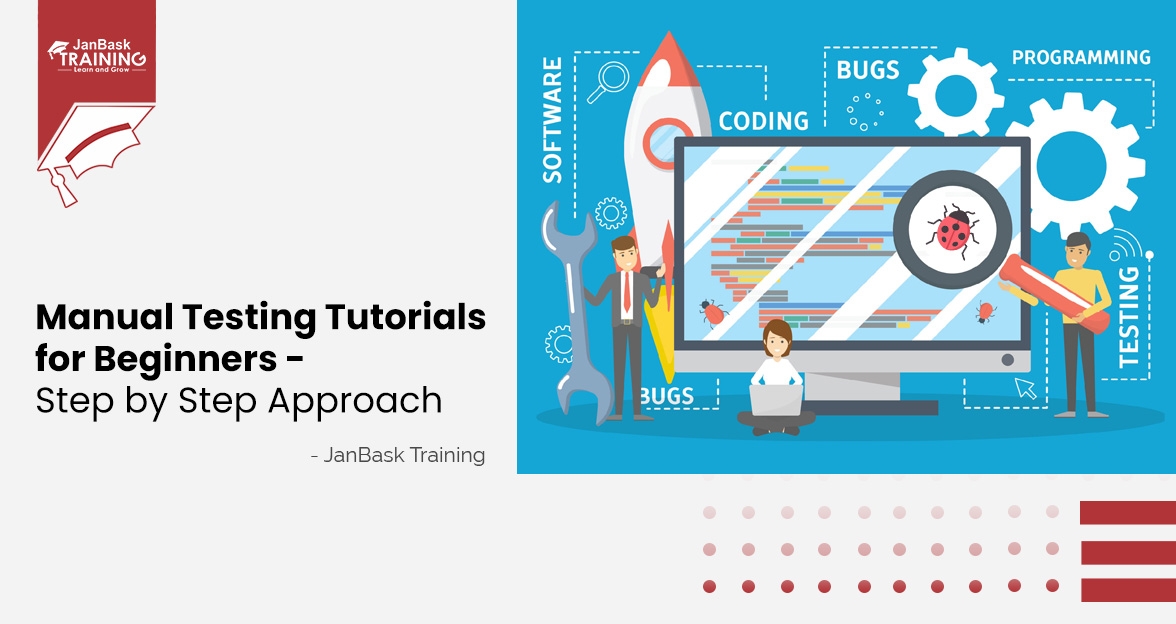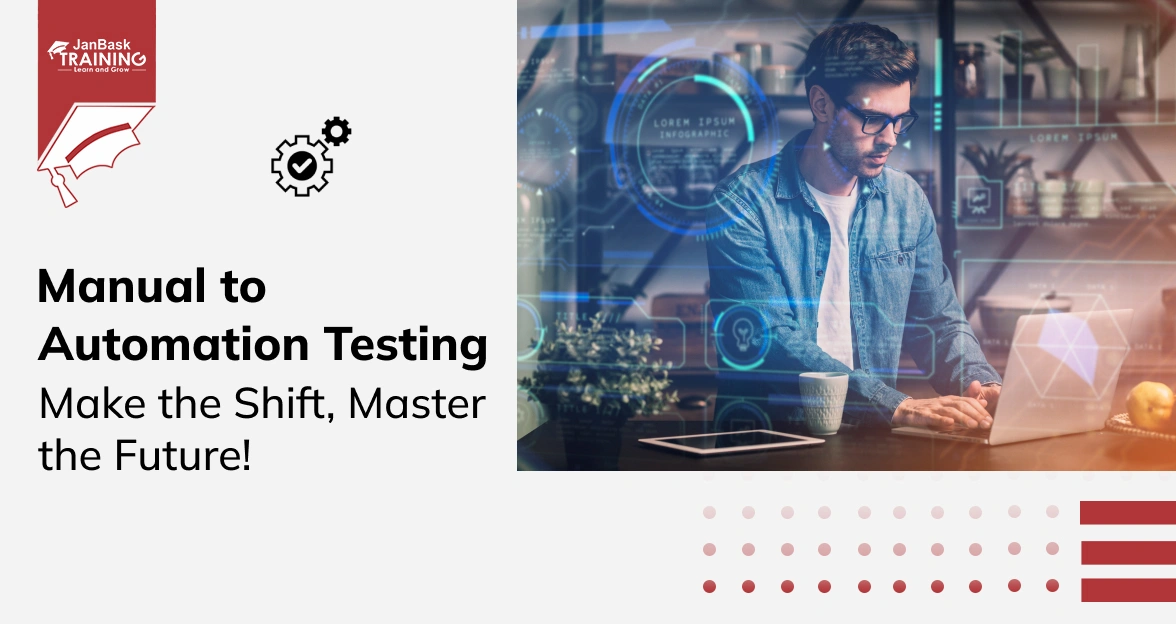Introduction
My journey to become a successful manual QA Tester started a bit differently. I started giving interviews to grep an opportunity in the development space. I could not bag a job directly as a developer in the initial phase of my career. Frankly, like any other IT graduate, I was skeptical about starting my career as a Tester. But I decided to give it a try. I was sure that I would switch to the development field later. Once I started growing my career in QA testing, believe me, I never looked back and did not even think of leaving testing after that.
Testing is all about the Practice
For my first interview as a Software Tester, I did work on basics only, but I was evaluated practically as well. Finally, I understood how freshers are evaluated for a software testing job. Even today, I suggest everyone learn practical and theoretical concepts before appearing for interviews. During graduation, you mostly get familiar with basics and theory.
To get hands-on expertise, the best idea is to join the QA Software Testing Training Program where you can learn everything from scratch. There are short-term courses to get help on how to become a QA tester where you can become a manual tester in just 30 days and learn something new almost every day. These courses are suitable for those who want to learn manual testing and bag a job quickly without spending more time on studies after graduation.
QA Software Testing Training
- Detailed Coverage
- Best-in-class Content
- Prepared by Industry leaders
- Latest Technology Covered
I also decided to take this course, where I learned practical aspects of testing and using two-three software testing tools as well. Upon the completion of my training, I completed one certification and started appearing for interviews. Finally, I got selected for Adobe and got my first project to work on the 3rd or 4th day. It was one of the company's largest projects, requiring us to test iOS apps on various iPhones as well as their compatibility with other operating systems. After settling down for the initial few weeks, there was no reason to go back for me.
I started in a team and worked on different aspects of testing like performance testing, security, UI, usability, behavioral testing, etc. I was working against developers, and I can proudly say that we tested and delivered successfully. In two years, I logged around 3000+ defects and learned something new every day. One thing I want to highlight as per my experience is that -
Testing is all about the practice, not the theory.
Before moving ahead, let me first tell you who is a Manual Tester, how he is different from an automation expert, and the skills expected to become a Manual Tester, and QA online courses to master testing skills.
Who is a Manual Tester?
A manual tester is a person who has to test a program or application through different scenarios. He is more focused on using manual testing practices instead of using a software testing tool. Testing cannot be done randomly, but you should follow a strict process and deeply check each aspect of the program.

Before moving to automation testing, you are strongly recommended to work as a manual tester and gain related skills and knowledge. A few things that are left behind by automated testing software can be managed by a manual tester. He has to document everything, whatever changes he is making. Obviously, it is a time-consuming process but considered a more trusted option when compared to automated testing.
Hopefully, you are clear on the basics of a manual tester; now, let’s check through the need for manual testing and the types of testing methods.
What is the Importance of Manual Testing?
Once the software application hits the market, it can pose several issues and errors. The clients can also encounter various concerns while deploying it. Hence, testing is executed to make the application perfect and offer a high-quality software product to individuals. While executing the manual testing process, the test engineer tests the software from the client’s viewpoint. In turn, produces perfect test cases and suggests the correct feedback to the software developers.
There are mainly two kinds of testing methods.
- Static Testing- This is also called the verification method. It includes the process of verifying files and essential documents. It guarantees that we are creating the correct item. It further checks the necessities. Test engineers are engaged in Reviews, Inspections, and more activities here.
- Dynamic Testing- Dynamic Testing is better known as the validation method. This comprises the all-encompassing method of testing and analyzing the software product. It validates if the developed item is perfect or not.
The test case design techniques refer to those methods that delineate the testing process. Now that you have known the importance and kinds of testing methods let’s know the types of manual testing.
What Are The Types of Manual Testing?
There are various kinds of manual testing, and they are compatible with respective software and surroundings. Without further delay, let’s have a quick glance at the different types of software testing methods.
Acceptance Testing
User Acceptance Testing, also known as the customer or end-user, executes UAT. This ensures that the software caters to the said requirements. This type of testing has got a better name as well. Wondering what’s it? Well, it’s also called pre-production testing. It gets the name as it occurs during the ultimate stage prior to releasing the item in the market.
UAT is an instance of functional testing, and various categories of acceptance testing comprise Alpha and Beta. Alpha testing is conducted within the organization's limits, while Beta testing is performed when the application is released to a specific market to produce user feedback.
Black Box Testing
Black Box Testing is also called behavioral testing. This specific procedure targets analyzing an application’s functionality from the client’s viewpoint. The internal code framework is not apparent during the testing process. Therefore, it’s known as black box testing. Hence, the testers are just conscious of the inputs and assumed outputs of the software.
Black Box Testing has various subcategories, containing functional testing for necessity compliance, smoke testing to understand basic functionality, and partitioning (separating software into categories that are assumed to have resembling behavior).
Integration Testing
Integration Testing involves testing an application, including two or more integrating elements. It is executed when each of the elements has been tested unit-wise. It targets detecting the issues with the interfaces and the communications between them. The two sole techniques comprise the Bottom-Up Approach ( going from the bottom to the peak module) and Top-Down Approach (the contradictory). The Integration Testing tutorial concentrates on interfaces and the flow of data between various software modules.
System Testing
System Testing refers to the entire testing system when all the elements have undergone unit testing and integration. It verifies that the system performs appropriately by comparing it against the actual necessities. System Testing is also known as end-to-end testing. It mainly comprises installability testing and recovery testing. Installability testing checks if the software is installed correctly. On the other hand, recovery testing checks whether the application can heal itself from hardware and network crashes.

Unit Testing
Unit Testing is performed when each unit or element of the application’s source code is tested. This, in turn, assures that every function works as intended. Software developers, rather than software engineers, mainly execute it. This is because it calls for extensive insight into the internal program is structure and code. Unit testing is also called module or component testing. It eases the debugging procedure and safeguards against errors in the upcoming times.
White Box Testing
White Box Testing is also called transparent box testing. This implies the process of testing the internal framework or performance of the application. It is done by the developer, who verifies that the internal codes of the software are acceptable before it gets over to the hands of the test engineer. The sole concern of White Box Testing is on enhancing security and refining the software’s framework and usability. You can also address White Box Testing as Structural testing. However, a blend of Black Box and White Box Testing is considered Gray Box Testing.
Now that you understand testing let's move on to the career path of a manual tester and the essential factors to becoming a manual tester.
How to Become a Manual QA Tester?
A QA or quality assurance tester tests software to address problems and guarantee that particular requirements are met. You might think about working as a QA tester if you can think critically and work well with others. The steps you must take to become a QA tester are outlined below.
- Educational Background: Courses in manual testing generally do not require any specific educational background. Whether you have a degree in computer science, engineering, or any other field, you can still pursue a course in manual testing.
- Prerequisites: Basic computer skills and familiarity with software applications are helpful. Understanding software development concepts can also be beneficial, but it's not always required for entry-level manual testing courses.
- Obtain a certificate You must earn at least one software quality assurance certification to be considered for QA tester positions. Doing this demonstrates that you have the tenacity and drive required in the sector. You might even be eligible for a promotion if you pass the certification exam.
- Hands- on experience An internship is a great way to obtain experience and get your foot in the door. It is a critical step when it comes to how to become a QA tester. An internship could be required to graduate from some undergraduate programs. Through these internships, you may get a great chance to learn more about what it takes to be a good QA tester.
- Submit a job application - You can submit an application for open quality assurance testing roles after completing all academic prerequisites and obtaining some experience. Look for employment opportunities that interest you and match your skills. Create your cover letter and CV with the job description for each position in mind to give them a more tailored feel. Engage with your professional network to learn about opportunities and referrals from other professionals. You can choose between numerous job offers if you get them by considering where you wish to reside and the income and benefits that each firm is willing to offer.
Must-Have Manual Tester Skills
An excellent manual tester should be open-minded, disciplined, passionate, and dedicated and can anticipate potential problems and report the same to the project lead. Also, he should have good communication skills because he has to interact with other members of the team or developers on a routine basis. Apart from this, he must also possess the knowledge about the techniques meant to design test cases.

To test any software program or application, it is necessary to have a programming background and a basic knowledge of Python, C++, Ruby, Python, etc. It can help manual testers in reporting errors much faster and more potentially. Working on an application's source code requires an excellent IT background and hands-on expertise in different programming frameworks.
Still, three primary skills needed to become a manual tester are given:
- You should have a sound idea of the business and the project requirements.
- You should have hands-on expertise in at least one programming language.
To become a manual tester in just 30 days, you should consider getting a certification as needed by top industries. You must gain the necessary skills and knowledge to clear the certification. It can be done through JanBask Training’s online training courses, where each course content is personalized and designed per the certification exam pattern. Once you have gained the certification, you can educate yourself about the latest industry trends and standard testing procedures.
Top Manual Tester Skills
A good manual tester should be open-minded, disciplined, passionate, dedicated, who can anticipate the potential problems and report the same to the project lead. Also, he should have good communication skills because he has to interact with other members of the team or developers on a routine basis.

To test any software program or application, it is necessary for having a programming background and the basic knowledge of Python, C++, Ruby, Python, etc. It can help manual tester in reporting errors much faster and more potentially. When working on the source code of an application, it requires an excellent IT background and hands-on expertise on different programming frameworks.
Still, three major skills needed to become a manual tester are given as:
- You should know how to design test cases.
- You should have a sound idea of the business and the project requirements.
- You should have hands-on expertise in at least one programming language.
Further, to become a manual tester in just 30 days, you should consider getting a certification as needed by top industries. To clear the certification, you have to gain the necessary skills and knowledge. It can be done through JanBask Training’s online training courses, where each course content is personalized and designed as per the pattern of the certification exam. Once you have gained the certification, you can educate yourself about the latest industry trends and standard testing procedures
Your Experience is your Mentor
It has been more than 6 six years today in the testing domain. It was an amazing journey with plenty of experiences and fruitful learning. I m working as a senior QA manager and taking care of 5-6 projects together. I am handling a team of 30+ testers that gave me real joy and happiness. Obviously, I am still learning, and I would say I have to pass through tough paths to reach this level in my career. The more honestly you work, there are more chances of becoming a better and more skilled resource in the future.
I believe that books don’t teach you how to test, but they can give you the right direction to start a career. It is why I focused on LIVE instructor-led QA training online and also joined JanBask Training’s manual testing community, where I learned everything practically and got an opportunity to work on real-time projects too. It helped me to understand the problem and the logic. Also, I became more confident in applying my skills in the workplace. You would not believe that I was selected for Adobe in my second interview only after completing the course. It was an accomplishment for me, and I would like to share it with everybody planning to start or switch careers in the testing space as a manual tester.
Till the time, you must have got an idea of how to become a manual tester in less time or just 30 days. Here are a few tactics on how should you approach different scenarios at the initial phase of your career.
A Few Examples how Did I approach in Tough Scenarios
A). Understand the Business to the Fullest
Mostly testers believe that they don’t have to understand the business deeply, but it is a myth. Testing is not about making a few validations or verifications. You have to test different scenarios even the rarest ones, without fail. You have to test each module or data, keeping actual users in mind. I would not be wrong in saying that you have to work as a business analyst sometimes where you need to understand the product requirements, objectives, the nature of the business, etc.
I was facing similar odds in the initial phase of my career.
I had to think from the users’ perspective, and I have to contribute to the requirements and Design phase for each iteration. Nothing helped me to resume apart my reasoning ability and hard work. To contribute to the success of a business, you have to design better use cases and scenarios.
Every time you are going to attend a “requirements meeting” or discussion, note down even small things and convert them into test cases for a better understanding of the concept. Keep doing it until you are sure that you are DONE!!
B). Working Against Odds Under Pressure
I was working on a huge and complex project where I have to interact with developers all the time to understand the product and its different modules. Initially, I was not sure of best practices that can teach me the solution to the problem. The only idea is to fight with the ground realities as you face them. The solution to a problem completely depends on how fast you can shift your thoughts and frame situations. Obviously, this approach demands aggressive work, but it works for everyone.
Try completing one thing at a time but independently. Independence is an asset that can take you higher in the long run. Take an example where you have to test a Textbox. So, what are the maximum possibilities here? Just note down each of them and start working on one by one.
- You have to check either this textbox accepts data or not.
- You have to validate data types and maximum length.
- You have to check how it stores special characters.
- You have to check how it works with multilingual data.
- Try to understand the behavior of tabs and different keys.
- Work on spaces and the tab.
- Check on error handling and UI alignment.
- Check how can you copy/paste the data from Textbox.
- Most importantly, check the behavior of Textbox concerning other associated elements.
Well, thinking from this perspective will surely give you the flexibility to work on different scenarios and test each of them regressively. Keep in mind to do one thing at a time, but do it honestly
C). How to Stand strongly against “Unexpected”?
Which tactic can help you when you have to do something you have never done before? Frankly, no book can help you how to become a QA tester, but your experience is the teacher.
I remember the time when we were asked to deploy a product in the absence of our Project Lead. We all were either freshers or middle-level experts. We started with lots of Trials and Errors. At that time, LINUX and shell scripting was new to us.

We put wrong commands but did not lose hope. It was the time when my natural interests grew in LINUX and shell scripting, and today, I am leading a team of 30+ professionals in my Company.
D). When performance matters, not the experience
In the initial phase of my career, I was compared with the most experienced testers around. The time when I was professionally looking at how to become a QA tester. I believe that almost everyone faces a similar situation when working with an organization. It helps you to push yourself and evolve. The only solution is to expand your knowledge base and start thinking broadly. Find ways to learn faster and grow your skills.

I bind my experience to these few lines.
Your hard work, dedication, discipline, logical thinking, attention to detail, and your passion is all needed to become a successful Tester. It worked for me as well. When you practice these qualities, no one can leave you behind.
Well, if you are thinking that I am promoting basic human qualities, then you are not completely right here. It is up to you how can you use these traits in your professional life. However, to go far in any domain, learn from your mistakes and experiences.
QA Software Testing Training
- No cost for a Demo Class
- Industry Expert as your Trainer
- Available as per your schedule
- Customer Support Available
Make sure that you are aware of basic terms and terminologies as well. Being a tester, you have to interact with many people and you should understand how to communicate with everyone. When the knowledge and experience of different members combine, it can add success to a product dramatically.
How Manual Testing is Different from Automation Testing?
Manual testing is based on the human personal touch and requires greater customization of testing algorithms. Based on your past experiences, you can follow the best approach to test each software part.
For bulk testing, manual testing can be a time-consuming process. So, automated testing was discovered where repeated use cases could be automated and executed much faster. These days there are many automated testing software or tools available in the IT marketplace, like JIRA, Selenium, etc.

Get hands-on expertise on any specific tool, and you are ready to start your career in the automation testing domain immediately. It’s essential to understand the difference between manual testing and automation testing and which technique is best suited to check a software’s effectiveness. However, before that, we will talk about the advantages and disadvantages of manual testing.
Pros and Cons of Manual Testing
What are the advantages and disadvantages of manual testing? Well, the pros and cons of manual testing have been mentioned below. So, let’s have a look at the same.
Advantages of manual testing
1. Manual testing identifies the most minor bugs and problems in the software application.
2. Manual testing enables software testers to avail visual elements such as layout, text, etc. The UX and UI bugs can also be detected through manual testing.

3. Manual testing is perfect when executing unplanned modifications to software applications. This is due to the fact that the changes can be accustomed quickly.
4. Since no top-level skills or tools are used, manual testing includes cheap cost of operations.
Disadvantages of manual testing
- The sole disadvantage of manual testing is that the process is lengthy.
- Manual testing makes it difficult to identify the GUI objects' color combinations and size variations.
- Manual testing does not allow performance testing and load testing.
- Here, regression test cases are a time-consuming process. In comparison to manual testing, automation testing is instantaneous and also quite cheap in the long run.
Various tools in manual testing
Now that you know the various pros and cons of manual testing, it's time to move to the various manual testing tools that can help in the process. Ready to know about the various manual testing tools? There you go!
- Jira- This comprises one of the reputed firms managing tracking bug issues. The compatible infrastructure and customizable attributes make Jira a fine management tool. It is simple to work on Java and also an intricate process, depending on the user and the kind of operation.
- Trello- Trello owes its popularity to compatible project management and fine tracking of bugs. The testers possess the expertise and free will to generate the issues through a comfortable set-up that can be again enhanced through intricate automation protocols.
- Zephyr- This particular tool antique Excel spreadsheet, perfectly when unified with Jira. It nurtures the transparency of the test outcomes by offering a finely arranged layout strategy, which is perfect for various build types.

- Sauce Labs- Among the vast list of software testing tools, Sauce Labs is comprehensive and delineates an excellent background for the users. It offers persistent cross-browser testing throughout a vast range of devices and browsers. The unique feature contains feedback loop integration. This facilitates fast and effective exchanges across the development stage.
- Browser Stack- This manual testing tool is renowned for fast-loading live applications to practical browsers. Although the pages are not totally operative, they will demonstrate the crucial and mandatory functions.
- Bugzilla- This comprises a practical and extensively utilized bug-tracking tool. It not only tracks the errors but also organizes the bug report. This can further be utilized as a test management tool. This specific tool can be smoothly connected to different test case tools such as quality center, ALM, etc.
- MantisBT- This refers to the Mantis Bug Tracker. This tool is an online-based error-tracking system and a freeware tool. It adheres to software errors and is used in the PHP programming.
Conclusion
Our primary focus is to dictate how to get into QA testing in less time and bag the job to start your journey in the testing space. Well, graduation courses can give you an idea of basic concepts only. To get hired and learn about the practical aspects of software testing, you should join the testing course online at JanBask Training immediately. Here, you will learn project-based learning and how to implement your skills in the manual testing workplace. Also, it will make you more confident to represent yourself in interviews. You can also refer to Real-time and Job-Focused Manual Testing Exclusively from JanBask Training to learn all about Manual Testing Principles from Seasoned and Certified Instructors. We wish you luck, and don’t forget to share your success story with us!
FAQs
Q1. Manual testing course overview.
Ans: JanBask Training’s online course on Manual Testing focuses on offering the course-takers the process of software testing, including proper planning, management, scheduling, test cases, defect analysis, identification, and much more. The importance of analyzing results and working in a virtualized environment. Complete knowledge of software testing technologies with different frameworks. Testing different components of applications. Staying up-to-date with the latest QA technologies.
Q2. What skills will you learn through our Online QA Courses testers?
Ans: In most of the guides of how to become QA tester, the following skills are listed –
- Java
- Agile
- API Testing
- JDBC
- TDD
- AWS
Q3. What are the features of your Online QA Courses testers that make them exceptional?
Ans:
- Earn an industry-recognized course completion certificate
- Self-paced live interaction classes from industry experts
- Get access to our quiz from LMS to scale your knowledge
- Get training from industry experts who are passionate about software testing
- A practical learning experience with live project work and mock test sessions
Q4. What are the benefits of this course?
Ans: Our Online QA courses help you learn the techniques of performing testing more effectively while getting equipped with project-based work scenarios. They also get you acquainted with practical knowledge from experienced QA professionals.
Q5. What top QA Testing Specializations do you offer?
Ans:
- Test Engineer
- Test Architect
- Automation Tester
- QA Analyst
- QA Engineer
- Test Analyst
- QA Tester
- QA Manual Tester
Q6. Who is eligible to take this QA training?
Ans: This training is apt for :
- Graduates who are looking for how to become a tester
- IT professionals who want to advance or switch their careers and think how to get into QA
- Software Testers who aspire to achieve a high-paying job in this field.
Q7. Does every software program need testers?
Ans: Undoubtedly, a tester is required for s/w programs because testing for the quality of the software is paramount to the success of any software product, and Without proper QA, the chances for success decline significantly.
Q8. Why is software testing important?
Ans: Software testing is a procedure of removing any error or bug from the Software’s source code to enable proper functioning, give correct results, and make it more reliable. Hence every software is tested thoroughly before packaging for customers or business clients. Because Software Testing removes every bit of bug or error, which helps them make reliable, less maintenance, more accurate, and consistent performance, which will pave the way for an easy user experience.
Q9. How can I become a Test Automation Architect or how to start a career in QA testing?
Ans: A Test Automation Architect is a professional who develops solutions for testing problems enterprises face at the time of the software development lifecycle. If you are aspiring to become a Test Automation Architect or looking for how to start a career in QA testing, you must have a clear understanding of test management, test automation frameworks, implementation of test plan, strategy, and execution, and be ready to take ownership of preparing testing solutions.
Q10. Is Software Testing a good career?
Ans: Once you learn to test, numerous job opportunities will be available to you in several companies worldwide. There are many jobs in numerous industries seeking to hire these professionals. Having said that, Software Testers are among the highest-earning professionals in the world. That’s why, there is a huge search for how to become a tester.
Q11. What are the benefits of the QA certification?
Ans: Earning a QA certification opens the gateway to many benefits. QA certifications offer a sharp competitive edge that sets you apart from the rest of the crowd. The QA training helps you to produce and ship error-free items that suffice to the client's demands. Top-class products contribute to happy customers, consumer loyalty, further purchases, and advocacy.
Q12. What are the career options after pursuing the QA training or the QA certification course?
Ans: The QA certification or QA test training offers numerous career options to choose from. QA certifications and QA test training can help you establish yourself as a junior software tester, QA engineer, senior software tester, test architect, QA lead, QA manager, or Quality Head.
QA Testing Course
Upcoming Batches
Trending Courses
Cyber Security
- Introduction to cybersecurity
- Cryptography and Secure Communication
- Cloud Computing Architectural Framework
- Security Architectures and Models
Upcoming Class
2 days 03 Jul 2025
QA
- Introduction and Software Testing
- Software Test Life Cycle
- Automation Testing and API Testing
- Selenium framework development using Testing
Upcoming Class
3 days 04 Jul 2025
Salesforce
- Salesforce Configuration Introduction
- Security & Automation Process
- Sales & Service Cloud
- Apex Programming, SOQL & SOSL
Upcoming Class
2 days 03 Jul 2025
Business Analyst
- BA & Stakeholders Overview
- BPMN, Requirement Elicitation
- BA Tools & Design Documents
- Enterprise Analysis, Agile & Scrum
Upcoming Class
10 days 11 Jul 2025
MS SQL Server
- Introduction & Database Query
- Programming, Indexes & System Functions
- SSIS Package Development Procedures
- SSRS Report Design
Upcoming Class
10 days 11 Jul 2025
Data Science
- Data Science Introduction
- Hadoop and Spark Overview
- Python & Intro to R Programming
- Machine Learning
Upcoming Class
3 days 04 Jul 2025
DevOps
- Intro to DevOps
- GIT and Maven
- Jenkins & Ansible
- Docker and Cloud Computing
Upcoming Class
-0 day 01 Jul 2025
Hadoop
- Architecture, HDFS & MapReduce
- Unix Shell & Apache Pig Installation
- HIVE Installation & User-Defined Functions
- SQOOP & Hbase Installation
Upcoming Class
3 days 04 Jul 2025
Python
- Features of Python
- Python Editors and IDEs
- Data types and Variables
- Python File Operation
Upcoming Class
18 days 19 Jul 2025
Artificial Intelligence
- Components of AI
- Categories of Machine Learning
- Recurrent Neural Networks
- Recurrent Neural Networks
Upcoming Class
17 days 18 Jul 2025
Machine Learning
- Introduction to Machine Learning & Python
- Machine Learning: Supervised Learning
- Machine Learning: Unsupervised Learning
Upcoming Class
24 days 25 Jul 2025
Tableau
- Introduction to Tableau Desktop
- Data Transformation Methods
- Configuring tableau server
- Integration with R & Hadoop
Upcoming Class
4 days 05 Jul 2025




